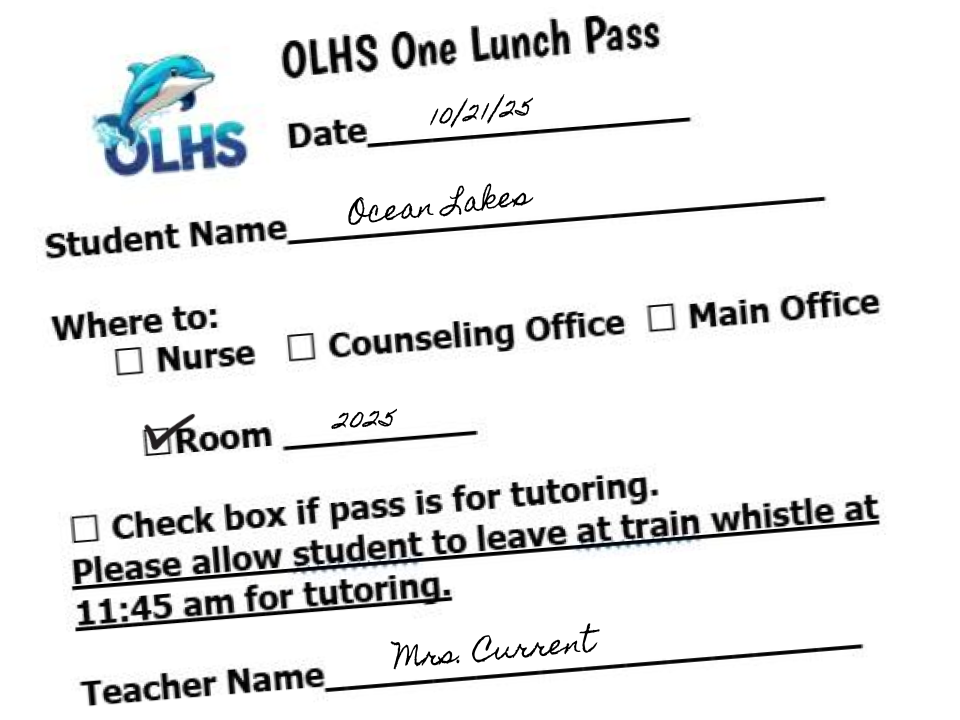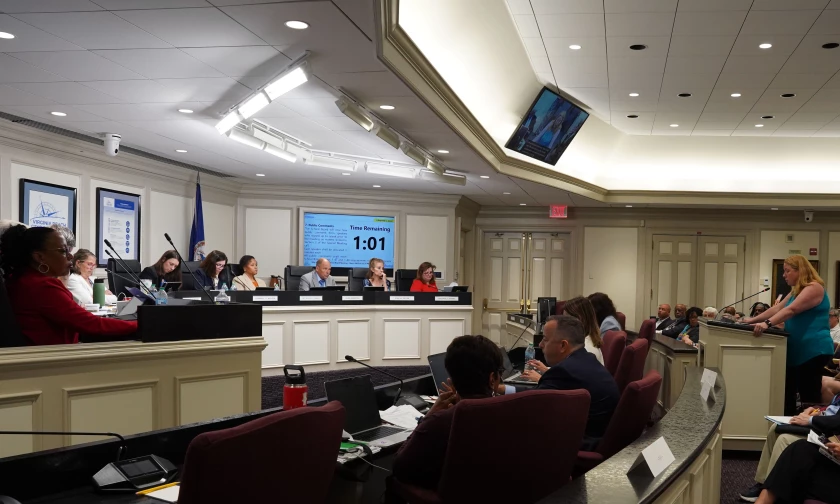Despite the fact that late assignments are habitually accepted, this practice will inevitably cause students to develop a poor work ethic that will affect their future endeavors.
While efforts have been made to prevent classroom distractions, such as prohibiting cellular device use during instructional time and limiting the accessibility of certain websites on school-issued Chromebooks, a fair portion of students continue not to utilize class time to complete assignments.
The posted policy from administration found on all teachers’ Canvas page under Grading Practices states, “Our [Ocean Lakes’] late assignment guiding principle is to be fair and considerate.”
The policy goes on to state: “Late assignments before the unit deadline are to be accepted; students who are tardy in their submission may receive only partial credit. Teachers may opt for a maximum penalty of 10%, as late work often loses its value as a learning opportunity when it no longer aligns with what students are learning in class.”
Such a small penalty creates little distress for the student.
Input from parents is a driving force behind the acceptance of these late assignments.
“My mom is a teacher,” junior Aidan Benson said. “She tells me she consistently receives nasty phone calls from parents after marking students’ work missing or tardy.”
Instead of ridiculing teachers and admin, parental figures should communicate with the child as to why their assignments are missing.
Although parents want to see their children succeed, they are truly setting their children up for failure when they do not earn their grades authentically.
This habit is unsustainable and it may lead to hurting the students in the future.
Whether it is a late assignment in college or a late inventory report at a sales job, these conditions allow little to no leeway for overdue tasks and can result in failure or dismissal from a job.
Additionally, when students are in college or at a job, their parents have little to no say and cannot bail them out.
Administrations’ mellow late work policy is not their fault; it is truly the arrogance and pride of the parental figures.
Students’ future failure is not the only potential issue that arises when they are accepted without penalty.
As a student who consistently turns in work on time, it is a grueling site to watch others receive penalty-free grades after they turn in work late. Also, if students observe their peers turn in late work and still receive all the credit, it does little to separate the academically high-achieving students who deserve commendation.
In turn, if late assignments continue to be accepted at such a small sanction for students. The diligent students who continuously turn work in on time could adopt this poor habit.
As students continue to thrive through their academic careers, those around them must help to create an equitable environment for all students.
However, not all late work should be penalized. If students genuinely do their work to the best of their ability and just become overwhelmed with the status of the workload, they should receive leeway or a possible extension. They should also be heavily encouraged to communicate with their teacher as to their situation.
Also, separate exceptions should be made, for instance, if a student has missed several due to an illness, family emergency or excused leave.
Shaping the youth into exceptional workers by instilling better habits is an investment worth the effort.
Parental figures must contribute to the success of their child by supporting them with assistance in regards to their assignments, helping them stay on top of their work and not encouraging lazy work habits.












